Heart Healthy Fats
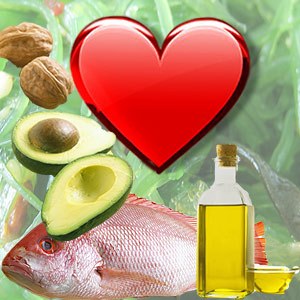
Food contains several kinds of fats, some healthy and heart friendly whereas a few are harmful for health. All fats do not work in a similar fashion. We need to consume certain amounts of good fat so as to maintain a balanced dietary intake. Curtailing fat completely is surely not called for! In fact, the key to good health lies in the mix of fats that you eat. Cholesterol is needed by our body to preserve the integrity of myelin sheath within the brain.
Facts about dietary fats
Fat is essential for our body as it supports numerous body functions.
- A few vitamins require fat to dissolve and to provide nourishment to the body.
- Our body makes its own fat from the excess calories that we consume.
- A few fats known as the dietary fats are consumed in the form of plant or animal food.
- Excess dietary fat can cause diseases like type 2 diabetes, Atherosclerosis - arteriosclerotic vascular disease (or simply put it is the thickening of arteries) , heart diseases, obesity, cardiovascular diseases etc.
Dietary fats are classified into healthy and harmful dietary fat. All foods have a mixture of fats; they are classified based on the predominance of a certain type of fat.
Heart healthy fats
Heart healthy dietary fat comprises unsaturated fat:
Monounsaturated fat: Found in oils and other food items. It helps to improve good cholesterol or HDL (high density lipoprotein) in the body. American Heart Association considers that HDL values lower than 50 mg/dL for women (it is 40 mg/dL for men) can accentuate the risk of cardiovascular diseases. Sources of monounsaturated fat include:
- Avocado
- Peanut and almond butter
- Vegetable oil like canola oil, olive oil, peanut oil
- Nuts like almonds, pistachios, pecans, peanuts, cashews.
Polyunsaturated fat (omega 6): Found in oils and plant based foods. Reduces risk for heart disease and promotes good cholesterol. Polyunsaturated fats can help lower your total cholesterol level.
Sources of polyunsaturated fat include:
- vegetable oil like sunflower oil, corn oil, safflower oil, sesame oil, soybean oil
- walnuts
- tofu
- soy nut butter, soy nuts
- pumpkin seeds, sunflower seeds, sesame seeds.
Omega 3 fatty acids: Found in fatty fishes and helps in reducing the risk of coronary heart diseases and blood pressure related health problems. Source of omega-3 fatty acids are:
- Fish like salmon, trout, sardines.
- Canola oil, flaxseeds and walnuts also are sources of omega-3.
Harmful dietary fats
Harmful dietary fats can raise the LDL (Low Density Lipoprotein) in the body and may make the lining of blood vessel inflexible. They can be classified as:
Saturated fat: This type of fat is mostly derived from animals. Saturated fat can raise diabetes levels, total blood cholesterol levels and LDL in blood which in turn that can raise the risk of coronary heart diseases. Sources of saturated fat include:
- High fat dairy products like cheese, ice cream, cream cheese, sour cream, butter, whole milk, cream, etc
- Chicken wings, dark meat chicken, poultry wings
- Fatty cuts of beef, pork and lamb
- Tropical oils like coconut oil, cocoa butter, palm oil, palm kernel oil.
Trans fat: This occurs naturally in many food items and is found in animal sources. Most of the trans fat gets generated while food is being cooked. This type of fat causes spurt in HDL and LDL levels in the blood. Sources of trans fat include:
- Vegetable shortening
- Stick margarine
- Doughnuts, French fries and all fried food
- Commercially prepared food that contains hydrogenated oil like cookies, crackers, microwave popcorn, pastries, cakes, etc.
Cholesterol: Cholesterol is not fat however it is a fat-like substance that is waxy. Human body manufactures some cholesterol and some cholesterol is derived from animals. Cholesterol is vital for the body as it helps the body to build cells and produce certain hormones. However we should keep in mind that this required cholesterol is produced by the body itself.
"Cholesterol helps break down food into essential nutrients. Combined with liver, it produces bile acids which are essential for the digestion of fats and clearing the waste. Cholesterol acts to interlock 'lipid molecules,' which stabilize cell membranes. Therefore, it is a vital building block for all bodily tissues." Says Shane Elison in his book 'Over the Counter Natural Cures' about Cholesterol.
Sources of cholesterol include:
- Organ meats like liver, kidney, brains
- Shrimp, squid
- Egg yolks, whole eggs
- Meat, poultry, sea food
Fat intake guidelines
- Total fat intake should be limited to less than 25-35 % of one's total caloric consumption per day.
- Saturated fat may not be more than 7% of the total fat intake.
- Trans fat to be limited t 1% of the total fat intake.
- The remaining fat can be from sources of monounsaturated and polyunsaturated fats.
- Cholesterol intake should be limited to less than 300 mg per day, for healthy people and 200 mg per day for people with coronary diseases.
Recommendations for heart healthy dietary fat
| Type of fat | Food source | Suggested intake |
| Total fat | Plant and animal based food | Includes all types of fat and can be 20% - 30% of total calorie intake |
| Monounsaturated fat | Olive oil, poultry, canola oil, peanut oil avocado, nuts and seeds | No specific recommendation on intake however should remain within the healthy limits |
| Polyunsaturated fat | Poultry, vegetable oil, nut oil and nuts and seeds | No specific recommendation on intake however should remain within the healthy limits |
| Omega-3 fatty acids | Walnuts, fatty fish, flax oil, ground flaxseed | No specific recommendation on intake however should remain within the healthy limits |
| Saturated fat | Butter, coconut, cheese, pizza, sausage, hot dogs, grain based deserts, etc | Not more than 10% of the total calorie intake |
| Trans fat | Cookies, cakes, snack foods, margarine, etc | Better if avoided, however minimal intake is suggested |
| Cholesterol | Dairy products, sea food, eggs, beef, hamburger, etc | Less than 300mg a day |
Choose the best heart healthy dietary fat
- Reduce consumption of food high in trans fat,cholesterol and saturated fat.
- Consume food rich in monounsaturated and polyunsaturated fat but keep within recommended healthy levels.
- Choose fats in your diet based on your cardiovascular conditions
- Use olive oil to sauté instead of butter.
- Read food labels before picking up the food product.
- Snack on nuts like unsalted walnuts, peanuts, almonds,sunflower seeds instead of potato crisps and French fries.
- Use canola oil for baking.
- Use olive oil for marinade and salad dressing.
- Use avocado instead of cheese.
Heart healthy diet
- Consume a balanced diet with plenty of fibers. Fibrous food like fresh vegetables, fruits, whole grains, nuts and legumes should be included. Consume cruciferous vegetables like broccoli and cauliflower.
- Avoid high-calorie food that has poor nutrient content.
- Consume fat-free or low-fat dairy products
- Limit consumption of saturated fat and cholesterol,food like red meat, egg yolks, shell fish, etc.
- Consuming oily fishes like salmon is good for the heart.
- Add chopped olives to your salads and casseroles.
- Replace sour cream dip with hummus.
- Try peanut oil to sauté your veggies.
Top of the Page: Heart Healthy Fats
Tags:#heart healthy fats #choosing healthy fats #heart healthy diet
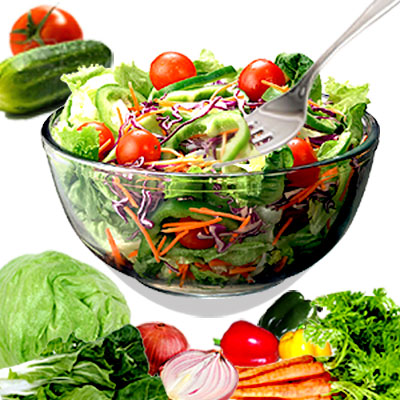 Food and Nutrition Facts
Food and Nutrition Facts Chamomile
Parsnip Soup
Dim Sum
Gazpacho Soup
Whole Grain Cereal
Jicama Nutrition
Bok Choy Stir Fry
Chia Seeds Benefits
Teff Nutrition
Kaniwa
Flax Seed
Wheatgrass Benefits
Kelp Benefits
Types of Chili Peppers
Medicinal Benefits of Pomegranate
Arugula Leaves
Maca Root
Pitaya Fruit
Benefits of Celery
Leek
Asparagus Benefits
Oyster Stew
Oyster Mushroom
Lupin Beans
Quinoa
Freekeh
Extra Virgin Olive Oil
Dill Pickle
Sauerkraut
Fat Burning Foods
Nutrition Chart
Food Combining
Calorie Counter
calories ...
Non Alcoholic Beverage
Punch Recipes
Food Label Nutrition
Homemade Sausages
Cooking Steak
Eating on a Budget
Budget Friendly Recipes
Quick Recipes
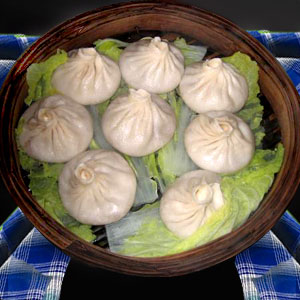 Healthy Packed Lunch
Healthy Packed Lunch Overnight Oats Recipes
Eggplant Casserole
Brunch Recipes
Burrito Recipes
Muffin Recipes
Cupcake Frosting
Apple Crisp
Stir Fry Cooking
Seafood Salad Recipe
Cooking Corn on the Cob
Finger Food Recipe
Sandwich Recipe
Bread Stuffing Recipes
Easy Chili Recipes
Picnic Recipes
Edible Mushroom Recipes
Mushroom Soup Recipes
Dip Recipe
Tapas Recipe
Corned Beef Recipe
Canned Salmon Recipe
Tilapia Recipes
Crumb Cake
Flourless Chocolate Cake
Regional Food
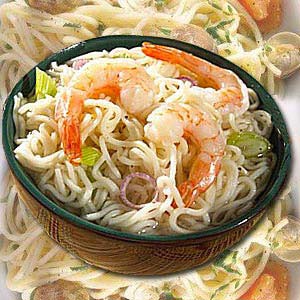 Lasagna Recipe
Lasagna Recipe Peruvian Ceviche
Chinese Food Recipe
Vietnamese Food Recipe
Malaysian Food
Korean Food Recipe
Indian Curry Recipe
Edible Rice Paper
Mexican Food Recipe
Quesadilla
Guacamole Dip
Italian Food Recipe
Spanish Food Recipe
Kosher Food
Falafel Recipe
Tandoori Chicken
Noodles
Canape
Couscous
Meatloaf
Chowder
Gumbo Recipe
Crockpot Recipes
Moroccan Food
Healthy Food
Pre Workout Snack
Matcha Tea
Simple food Swaps to Lose Weight
Foods to Beat Stress
Foods to beat Insomnia
Bone Density Foods
Prebiotic Foods
Kefir Grains
Agave Nectar
Spicy Trail Mix
Pesto Sauce
Homemade Hummus
Crab Cake Sauce
Bamboo Shoots Nutrition
Lemon Grass Plant
Butter Beans Recipes
Loose Green Tea
Seaweed Nutrition
Healthy Food
Low Fat Granola Bar
Steel Cut Oatmeal
Fruit Pizza
Pizza Toppings
Green Smoothie
Healthy Meal Planning
Delicious Mealtime Recipes
Heart Healthy Fats
Healthy Heart Recipe
Healthy Dinner Recipe
Healthy Dessert Recipe
Healthy Fast Food
Healthy Kid Recipe
Probiotic Food
Diabetic Friendly Foods
Fruit Salad Recipe
Bread Pudding
Tofu Recipe
Oat Bran
Broccoli Salad
Avocado Recipe
Iron Rich Food
Brain Foods
Antioxidant Food
Natural Diuretic
Low Fat Cooking Tips
Rice Pilaf Recipe
Low fat Chicken Recipe
Food Tips
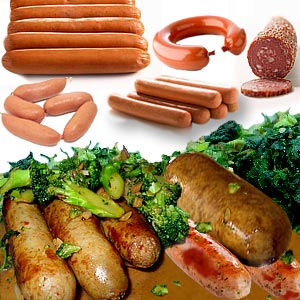
Sous Vide Cooking Technique
Natural Sugar Substitute
Stevia Sugar Substitute
Sunflower Seeds Nutrition
Bouquet Garni
Cake Decorating Tips
High Satiety Foods
Thanksgiving Dinner
Safe Food Storage
Frozen Food Storage Tips
Cold Storage Food Tips
Leftover Recipe
Food Pyramid
Dairy Free Food
Microwave Cooking
Food Intolerance
Homemade Ice Cream
Apple Cider Vinegar
Benefits of Honey
Beverage Cooler
Food Poisoning Symptom
Food Allergy Symptom
Food Addiction
Top of the Page: Heart Healthy Fats
Popularity Index: 100,953

